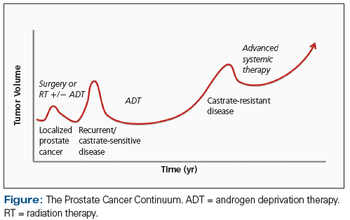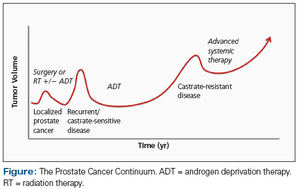Articles by Michael R. Harrison, MD

Panelists discuss the rapidly evolving landscape of non–clear cell renal cell carcinoma, emphasizing the shift toward subtype-specific clinical trials, the critical role of next-generation sequencing and germline testing in guiding personalized treatment, and the importance of ongoing research collaborations to advance precision medicine and improve patient outcomes.

Panelists discuss the complexities of managing metastatic chromophobe renal cell carcinoma in a high-risk patient, emphasizing the role of molecular testing, limited but evolving therapeutic options including VEGF and mTOR inhibitors and immunotherapy, and the urgent need for subtype-specific clinical trials to guide personalized care.

Panelists discuss the case of a metastatic papillary kidney cancer patient, emphasizing the importance of balancing efficacy and tolerability in frontline therapy selection, incorporating molecular profiling, and considering immune-based combinations alongside targeted agents within a personalized, multidisciplinary care framework.

Panelists discuss the evolving clinical trial landscape in non–clear cell renal cell carcinoma, highlighting ongoing studies of combination therapies integrating TKIs and immuno-oncology agents, the challenges of rare subtypes, and the critical role of trials and support networks in advancing personalized treatment options.

Panelists discuss the KEYNOTE-B61 phase 2 trial of lenvatinib and pembrolizumab in non–clear cell renal cell carcinoma, highlighting its promising response rates, durable remissions, and subtype-specific outcomes, while emphasizing the need for further research to refine treatment approaches across diverse histologies.

Panelists discuss results from a phase 2 study of nivolumab plus cabozantinib in non–clear cell renal cell carcinoma, highlighting promising efficacy but notable treatment discontinuation rates likely linked to patient complexity, underscoring the need for further research on TKI-IO combinations in this diverse population.

Panelists discuss findings from a landmark European phase 3 trial showing improved overall survival with ipilimumab and nivolumab versus standard therapies in non–clear cell renal cell carcinoma, supporting the role of immune-based combinations across histologic subtypes and reinforcing the need for subtype-specific treatment strategies.

Panelists discuss first-line treatment strategies for metastatic non–clear cell renal cell carcinoma, highlighting the shift from broad, subtype-agnostic approaches to histology-specific and biomarker-driven therapies, including evolving combinations of TKIs and immunotherapy tailored to tumor biology.

Panelists discuss first-line therapy for non–clear cell renal cell carcinoma, emphasizing its diverse histologies, the challenges posed by limited clinical trial data, and the importance of molecular diagnostics and multidisciplinary strategies to guide personalized treatment.

How Can We Effectively Address the Medical and Psychological Concerns of Survivors of Pelvic Malignancies?
ByRamiro Jose Madden-Fuentes, MD,Bridget F. Koontz, MD,Michael R. Harrison, MD,Daniel J. George, MD,Brittany Davidson, MD,Brian F. Gilmore, MD,Judd W. Moul, MD,Christopher Mantyh, MD,Andrew C. Peterson, MD Sexual and urinary morbidities resulting from treatment of pelvic malignancies are common. Awareness of these complications is critical in order to properly counsel patients regarding potential side effects and to facilitate prompt diagnosis and management.

Men with high-risk nonmetastatic CRPC should if possible be enrolled in a clinical trial and that patients with low-risk disease can be safely observed.

There is ample evidence suggesting that physical activity and exercise can be therapeutic tools for patients with prostate cancer. Patients diagnosed with localized disease should be advised to stay physically active; furthermore, patients who are undergoing radiation therapy and/or treatment with ADT appear to benefit from regular aerobic and resistance exercise to alleviate side effects.

We have presented the first case of a patient with metastatic ATGCT with peritoneal carcinomatosis, who responded to treatment with a VEGFR tyrosine kinase inhibitor. Because of the relative paucity of such cases in the literature, no clear treatment strategy exists. For patients with metastatic ATGCT, enrollment in clinical trials testing novel therapies, including angiogenesis inhibitors, is a reasonable option.






